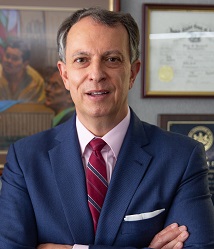In a recent decision upholding the expansive reach of the federal wire fraud statute (18 U.S.C. §1343), the U.S. Supreme Court ruled in Kousisis v. United States, No. 23-909 (May 22, 2025) that a defendant can be convicted of wire fraud even if the victim suffers no net economic loss. The Court’s opinion, authored by Justice Barrett, holds that deception alone — if material and aimed at obtaining money or property — can suffice for a federal wire fraud conviction.
The ruling underscores the broad reach of federal prosecutors under the wire fraud statute and reinforces the importance of strict compliance with representations made during the bidding and negotiation process.
The Facts: A “Pass-Through” Scheme
The case involved two public works contracts awarded by the Pennsylvania Department of Transportation (PennDOT) to Alpha Painting and Construction Co., managed by petitioner Stamatios Kousisis. As a condition of receiving federal funds, PennDOT required a portion of each contract to be subcontracted to a Disadvantaged Business Enterprise (DBE), as defined by federal regulations.
Kousisis represented that Alpha would purchase paint supplies from Markias, Inc., a certified DBE. In reality, Markias served as a pass-through entity: it neither supplied materials nor performed any commercially useful function. Instead, it merely processed invoices and collected a fee, while Alpha sourced materials from non-DBE suppliers.
Notwithstanding the DBE deception, Alpha completed the projects to PennDOT’s satisfaction and earned over $20 million in gross profit. The government charged Kousisis and Alpha with wire fraud and conspiracy, alleging that they fraudulently induced PennDOT to award the contracts under false pretenses.
The Legal Issue: Is Economic Loss Required?
Kousisis argued that because PennDOT received the full value of the services it contracted for, there was no deprivation of “money or property” as required by §1343. The Third Circuit rejected this argument, and the Supreme Court affirmed.
The Court held that the wire fraud statute does not require the government to prove that the victim suffered a net pecuniary loss. Instead, it is enough that the defendant used material misrepresentations to obtain money or property. The Court emphasized that the statutory language — “scheme or artifice to defraud, or for obtaining money or property by means of false or fraudulent pretenses” — does not mention economic loss, and that common-law fraud historically did not require it in all contexts.
Materiality as a Limiting Principle
To address concerns about overcriminalization, the Court reaffirmed that materiality remains a critical element. Not every lie is actionable — only those that would influence a reasonable person’s decision to enter the transaction. In this case, the DBE requirement was a material term of the contract, and Kousisis’s misrepresentations went to the heart of the government’s decision to award the contracts.
Justice Thomas, concurring, expressed skepticism about whether the DBE provisions were truly material, suggesting that future cases may test the boundaries of this standard. Justice Gorsuch, in a separate concurrence, warned that the Court’s reasoning could open the door to prosecuting “victimless” lies and urged adherence to the traditional “benefit of the bargain” rule.
Implications for White-Collar Defense
Kousisis is a wake-up call for contractors, corporate executives, and their counsel. It confirms that:
- Material misrepresentations alone can support a fraud conviction, even if the government receives full value.
- Compliance with regulatory requirements is not just a contractual issue—it’s a potential criminal liability issue if misrepresented.
- The scope of federal fraud statutes remains broad, and courts are willing to uphold convictions even in the absence of financial harm.
In the post-Kousisis era, the absence of economic loss is not a shield against wire fraud liability. This decision highlights the importance of scrutinizing representations in government contracting, grant applications, and other regulated transactions.
On May 12, 2025, Matthew Galeotti, Head of the Criminal Division at the Department of Justice – Criminal Division, released a memo (the “Memo”), outlining the DOJ’s priorities with respect to the investigation and prosecution of white-collar crime. Mr. Galeotti joined the Criminal Division in March 2025 as its Head. Previously, Mr. Galeotti served as an Associate Deputy Attorney General, Acting Deputy Chief of the Business and Securities Fraud Section, and as a line prosecutor in the Eastern District of New York.
The Memo seeks to promote the prosecution of “fraud in U.S. markets and government programs,” while at the same time, seeking to curb perceived “overbroad and unchecked corporate and white-collar enforcement” that “burdens U.S. business and harms U.S. interests” and “punishes risk takers and hinders innovation.”
Areas of Focus
The Memo lays out ten targeted “Areas of Focus,” which the DOJ describes as, “the most urgent criminal threats to the country.” The current Areas of Focus include:
- Healthcare fraud and procurement fraud;
- Trade and customs fraud, including tariff evasion;
- Fraudulent practices of foreign adversary companies or variable interest entities (VIEs); primarily based in China and listed on the U.S. Stock Exchange. According to the Memo, these entities “facilitate the flow of U.S. Investor funds into strategic industries in China” and are “used to facilitate fraud in the U.S. markets;”
- “Complex frauds” identified as “Ponzi schemes, investment fraud, and elder fraud;
- Financial institutions that allow U.S. adversaries to avoid sanctions;
- Business and financial institutions that support terrorist organizations;
- Foreign “sophisticated money laundering operations,” with a focus on China, that exploit our financial system, strengthen foreign criminal organizations, and facilitate the flow of dangerous drugs, such as fentanyl, to the U.S.;
- Violations of the Controlled Substances Act and the Federal Food, Drug, and Cosmetic Act, including the unlawful manufacture and distribution of chemicals and equipment used to create counterfeit pills laced with fentanyl as well as the unlawful distribution of opioids by medical professionals and companies;
- Bribery and associated money laundering that impacts U.S. national interests, undermine U.S. national security, harm the competitiveness of U.S. businesses, and enrich foreign corrupt officials; and
- “Crimes that exploit our monetary system,” with a focus on digital assets, namely individuals who victimize digital asset investors and those who use digital assets in furtherance of crimes.
Expansion of The Whistleblower Program
In focusing on the above areas of interest, the Memo encourages line prosecutors to prioritize the seizure of assets that are the proceeds of the above criminal activity. To facilitate this, the Memo envisions an expansion of the DOJ’s current Corporate Whistleblower Pilot Program to allow for insider whistleblowers to share in both civil and criminal forfeiture proceeds in the following subject areas:[1]
- Violations by corporations related to international cartels or transnational criminal organizations, including money laundering, narcotics, Controlled Substances Act, and other violations;
- Violations by corporations of federal immigration law;
- Violations by corporations involving material support of terrorism;
- Corporate sanctions evasion;
- Trade, tariff, and customs fraud by corporations; and
- Corporate procurement fraud.
Promotion of The Corporate and Enforcement Voluntary Disclosure Policy
Of note, the Memo emphasizes that it is the DOJ’s “first priority” to “prosecute individuals over corporations.” In encouraging companies to participate in the Criminal Division’s Corporate Enforcement and Voluntary Self-Disclosure Policy (CEP), the DOJ suggests that “civil and administrative remedies directed at corporations, are often appropriate to address low-level corporate misconduct.” The Memo instructs line prosecutors to consider additional factors when determining whether to charge corporations, including “whether the company reported the conduct to the government, its willingness to cooperate with the government, and its actions to remediate the misconduct.”
The Memo directs the Criminal Division’s Fraud Section and the Money Laundering and Asset Recovery Section to revise the CEP to clarify that additional benefits are available to companies that self-disclose and cooperate, including the potential for shorter terms for corporate agreements. The Memo suggests that, going forward, corporate agreements should not be longer than three years, “except in exceedingly rare cases.”
Finally, these Sections are instructed to review existing corporate agreements, pursuant to the CEP, for possible early termination. According to the Memo, factors to be considered for early termination are, “[the] duration of the post-resolution period, substantial reduction in the company’s risk profile, extent of remediation and maturity of the compliance corporate program, and whether the company self-reported the misconduct.” This is consistent with a leaner DOJ.
Corporate Investigations
The Memo acknowledges that “federal investigations into corporate wrongdoing can be costly and intrusive for businesses, investors, and other stakeholders.” The Memo therefore instructs line prosecutors to “move expeditiously to investigate cases and make charging decisions.” Additionally, the DOJ endeavors to “track investigations and ensure that they do not linger and are swiftly concluded.”
The Use of Corporate Monitors
In contrast with prior Administrations, where monitors were used more aggressively, the Memo recommends that independent compliance monitors only be utilized “when a company cannot be expected to implement an effective compliance program or prevent recurrence of the underlying misconduct without such heavy-handed intervention.” The Memo goes on to announce the drafting of a new “monitor selection memorandum” that will:
- clarify the factors that prosecutors must consider when determining whether a monitor is appropriate and how those factors should be applied; and
- ensure that when a monitor is necessary, prosecutors narrowly tailor and scope the monitor’s review and mandate to address the risk of recurrence of the underlying criminal conduct and to reduce unnecessary costs.
Finally, the Memo announces that the DOJ “has undertaken an individualized review of all existing monitorships to make case specific determinations of whether each monitor is still necessary.”
Take Away
The Memo seeks to bolster prosecution of “serious fraud” in U.S. markets and government programs while curbing “overbroad and unchecked” enforcement that can “stifle legitimate business risk-taking and innovation.” Through the issuance of the Memo, the newly configured DOJ has highlighted its strategic objectives. The Memo does not stray from prior Administrations with its focus on fraud, specifically healthcare fraud, market manipulation, material support of terrorism, and narcotics offenses. It also addresses focal points of the new Administration, such as the misuse of VIEs, customs and tariff-related violations, and immigration violations. Notably, the DOJ hopes to expand its whistleblower program to engage in these areas more effectively.
Finally, in an attempt to ease the burden on U.S. companies, the Memo emphasizes the importance of an expeditious and efficient investigative process, along with a renewed focus on incentivizing voluntary self-disclosure and cooperation. Additionally, the DOJ signals a shift away from the routine imposition of compliance monitors, which had become a cottage industry for a number of lawyers and law firms, toward the utilization of monitors only when “demonstrably necessary.”
[1] In place for a little under a year, the DOJ Whistleblower Program, allows for whistleblowers to be eligible for an award as follows:
i. An award of up to 30% of the first $100 million in net proceeds forfeited.
ii. An award of up to 5% of any net proceeds forfeited between $100 million and $500 million.
iii. No award on net proceeds forfeited above $500 million
Section 3.1 of the Whistleblower Pilot Program Guidance





